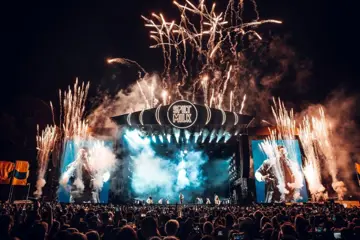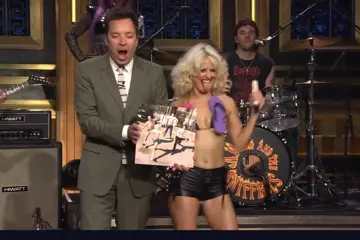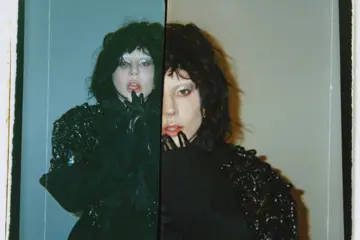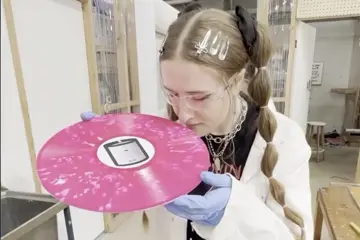When director Julian Harvey was handed the 105 hours of raw footage that would serve as the basis of The Crossing, he “Could instantly see that there was someone behind the camera who knew what they were doing”.
That someone was Clark Carter, one of the two adventurers who set out to traverse the entirety of Victoria Island, a largely-uninhabited stretch of remote wilderness in Arctic Canada. Along with Chris Bray, Carter set out on foot, camera in hand. “They were filming when they were really in pain, and really suffering, and obviously never just saying 'it's too hard, I'm not going to pull out the camera now'. Because of that, there was really something,” Harvey enthuses.
Carter was, when the duo first started planning their first trip to Victoria Island, a uni student in Sydney studying, among other things, cinema. So, he came prepared. “I went into the trip knowing the adventure itself was half the battle,” Carter says, “the other half was filming it all. It took up a huge amount of energy, because the worst moments for you are the best moments to film. So, we really had to get into this mindset of stopping during the worst moments, pulling out the video camera, doing a little piece-to-camera, getting a few wide shots.
“When you're surrounded by mud everywhere, you need very long legs on the tripod,” Carter continues, with a laugh. “We got really ruthless with our video cameras. We did a lot of things that you don't want to do to your cameras: strapping them to the side of wheels, rolling over them accidentally, placing them on a little floatie and pushing them out on the water. Because we had two cameras, we were never that scared about what would happen if one of them broke; we knew we'd always have the other one. So we were pretty ruthless about always whipping it out; we figured even if we dropped the camera in the water, at least we'd get a good shot out of it.
“It only really got annoying when the other person wanted to film when you didn't really want to. If I was just in a really uncomfortable position, and all I wanted to do was push through and try and get to camp, and Chris would drag the whole process out by setting up a shot, stopping me, asking me to hold on while he set up another shot, asking me, 'How are you feeling, Clark? Say something to the camera!'”
Eventually, for Carter and Bray, “The video camera eventually became the third team member: the one [they'd] confide in when things are going rough, this outlet for stress.” This in-the-moment feeling gifts The Crossing with what Harvey calls the “sometimes disappointing, sometimes exhilarating, often monotonous” journey of trudging across endless wilderness, on foot, for months at a time. Harvey is himself an adventurer – “I've done a couple of trips to Antarctica, treks all over the world, filming at high altitude” – so he understood the tone the film needed to capture: both breathtaking and banal, and about the relationship forged along the way.
“It doesn't fit a nice category: it's not a real high-tension, high-stakes, high-drama adventure movie,” says Harvey. “There is a particular genre for the 'adventure' film, and people know what they're in for with that. There are definitely elements of that in our story, but we hoped for something a bit different. It's about these two guys and this sense of adventure; this dream that you have as a kid that most people get squashed out of them. But the way that they shot it was really intimate; it's just the two of them.”
Just the two of them, indeed. “You're stuck with the one person 24 hours a day, seven days a week, for periods of two or three months,” says Carter. “Under really stressful situations: you're both tired, you're both irritable, you're both stretched to your own personal limit – it's quite trying. But because you're having the exact same experiences together, you tend to get on the same page pretty quickly.”
Yet, while Carter has heard of other expeditions that had to be cancelled due to personal conflicts between the party members – “they just couldn't stop arguing!” – he and Bray have remained close even back in civilisation. “We get together, have beers, plot and scheme,” Carter smiles. “But it always comes down to time and money. So, nothing is planned at the moment, but we're always talking about potential adventures.”















